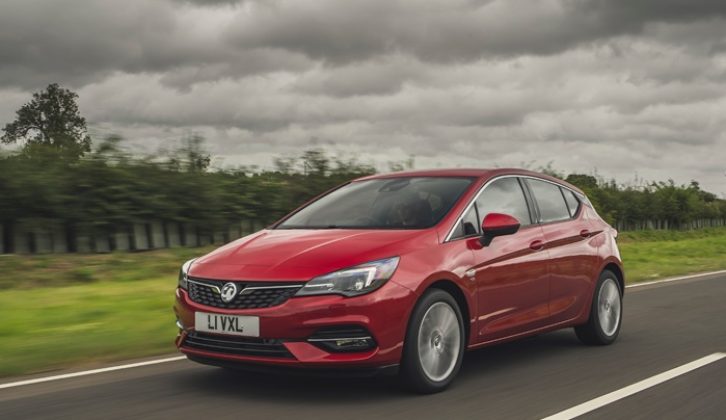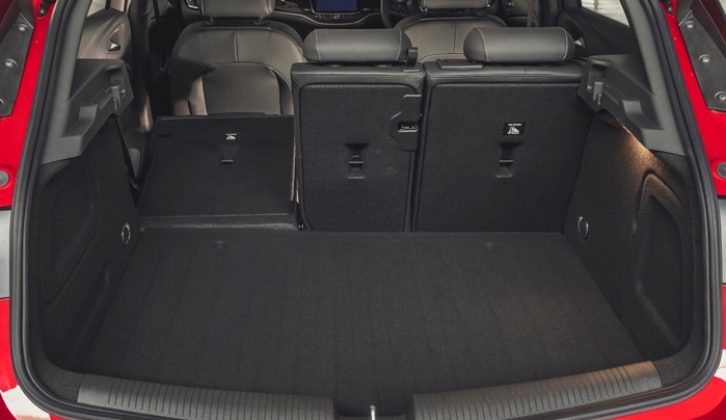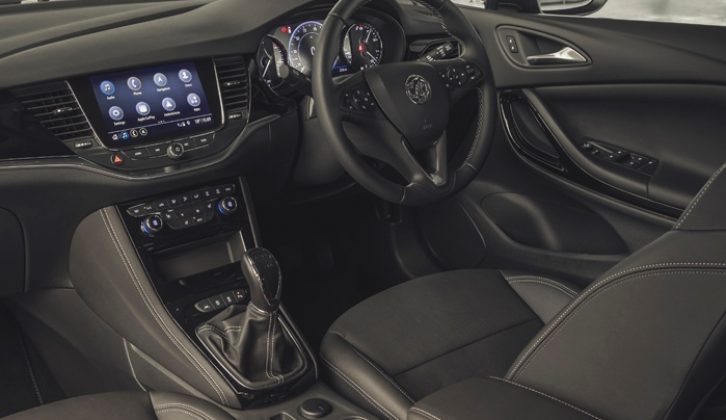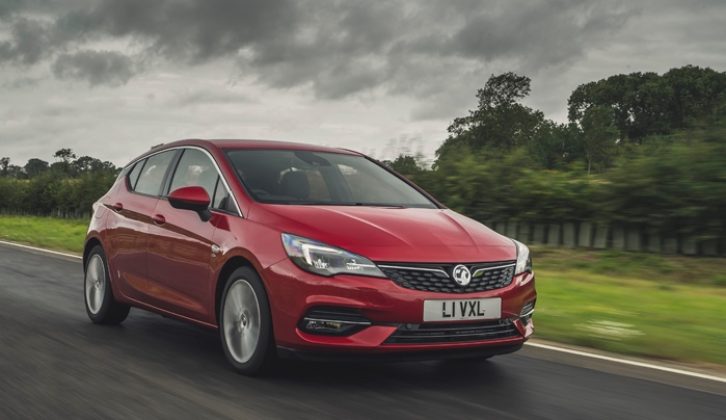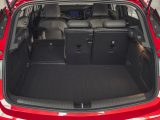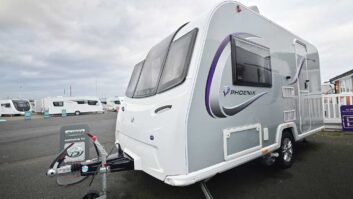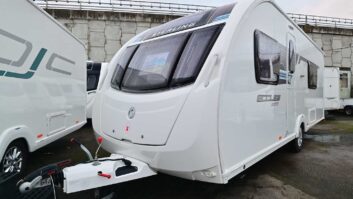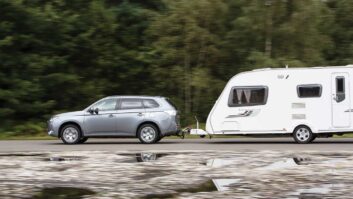Efficiency is the name of the game with the updated Vauxhall Astra. Efficient aerodynamics and efficient engines should make the updated car very cheap to fuel, although for tow car drivers it’s a shame there’s isn’t a more powerful diesel.
Subtle changes to the exterior underplay the extent to which the Astra has been revised under the skin. There are LED headlamps and a couple of new colours, but little else to distinguish the new model from the old. “Exterior design is one of the Astra’s key strengths,” says Vauxhall’s product manager, Adam Collins. “There’s no point in change for the sake of it.”
Look really closely, and you may notice the new grille. The upper and lower portions open and close, smoothing airflow around the front of the car when shut. There are further changes under the car, with covers and panels to help the Astra slip through the air. Vauxhall says a 10% reduction in drag leads to a 2% reduction in fuel consumption, so these changes should cut fuel costs.
New engine line-up
The engine line-up is all new. For petrol buyers, a 1.2-litre turbocharged engine is available in three states of tune with 110, 130 or 145hp. Those engines come with a manual gearbox. If you prefer an automatic, there’s a 1.4 turbo with 145hp.
Diesel drivers have a choice of 105hp and 122hp 1.5-litre diesels, with the more powerful model being available with an auto as well as the manual.
The high-powered diesel looks like the best choice for regular towing, although even this engine offers lukewarm performance. With 221lb ft of torque, it trails the VW Group’s 150hp diesel by 30lb ft.
In solo driving, the engine can feel a little lethargic at low revs, but it pulls well enough once it gets going. However, it’s going to be at a disadvantage compared with the punchier diesels available in many rivals.
The pay-off for modest performance is excellent economy and low emissions. The 122hp 1.5 returns 58.9-62.8mpg on the combined cycle, and emits just 92kg/km of carbon dioxide. The engine also passes the RDE2 emissions test, which means company car drivers avoid the 4% benefit-in-kind tax surcharge for diesels. Meeting this standard also means the car is one Vehicle Excise Duty band lower than most rivals for the first year.
We also tried this engine matched to a nine-speed automatic. It shifted smoothly enough, although the engine had a disconcerting habit of sounding as if it were about to stall whenever we stopped. It’s worth noting that the engine is in a slightly dfferent state of tune with the auto with torque dropping slightly to 210lb ft.
Vauxhall has kerbweights for these cars, but has yet to confirm legal towing limits. The 122hp diesel manual weighs 1371kg, including 75kg for the driver. The auto is a little heavier, with a kerbweight of 1395kg. All models have a modest maximum towball download of 55kg.
Although a diesel would be our pick for pulling a caravan, we also drove the 145hp 1.2-litre turbo. It’s a willing engine, although with just 166lb ft of torque it’s likely to have its work cut out towing a caravan. With a manual gearbox, this car has a kerbweight of 1280kg, rising to 1345kg for the auto.
Will it tow well?
The only sure-fire way to tell how well a car tows is to tow with it, but so far as we can tell from our solo test drive, the Astra should prove a stable tow car. The suspension and steering have been revised, and the comfortable but controlled ride suggests the Vauxhall should be able to keep a sensibly matched caravan on a tight leash. However, with such modest kerbweights the Astra is best suited to lightweight caravans.
Inside, there are new seat trims and new infotainment systems, with a digital screen instead of dials on the top-spec model. The Astra is well finished, and the driving position is comfortable. However, rivals like the Skoda Octavia offer more rear legroom and greater luggage space. It won’t take long to fill the 370-litre boot if you’re loading up to go on tour.
The Astra is an appealing car to drive, and the new engine ranges are very economical. From a caravanner’s perspective, though, it’s a shame there isn’t a more powerful diesel.
There are further changes under the car, with covers and panels to help the Astra slip through the air. These changes should cut fuel costs
